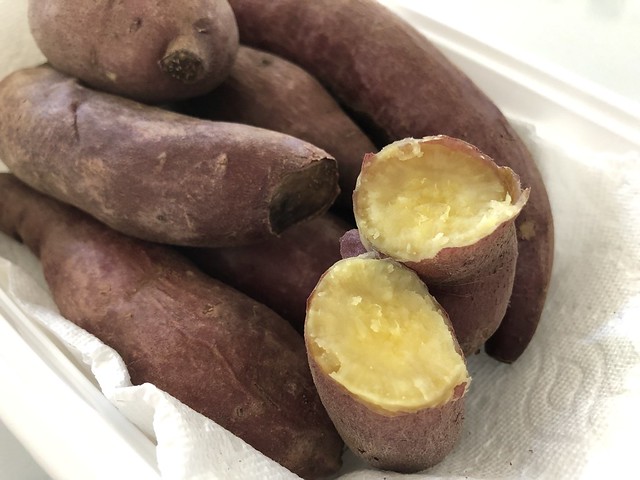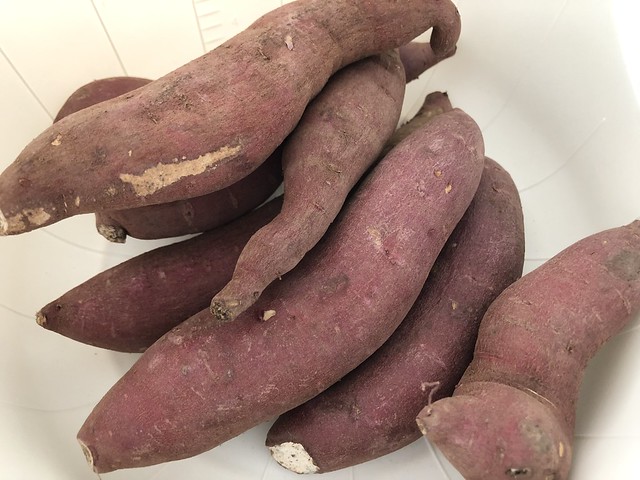You are here
Korean Sweet Potatoes
Last week, a reader in southern California asked for a healthy way to prepare Korean sweet potatoes without baking or roasting in the oven. With electricity costs soaring all over the world, it's understandable that people are looking to cut down on oven use, especially with root vegetables that require relatively high heat and long cooking times.
My preferred method for cooking sweet potatoes is quite simple:
1. Thoroughly clean sweet potatoes under running water.
2. Place sweet potatoes in a pot and fill about halfway with water - the potatoes don't have to be fully covered with water.
3. Bring to a boil, then simmer for 35 minutes with a lid on the pot.
4. Drain water, allow sweet potatoes to cool, and enjoy. Leftover cooled sweet potatoes can be wrapped in paper towel and stored in an airtight container in the refrigerator, to be re-heated before eating later.









